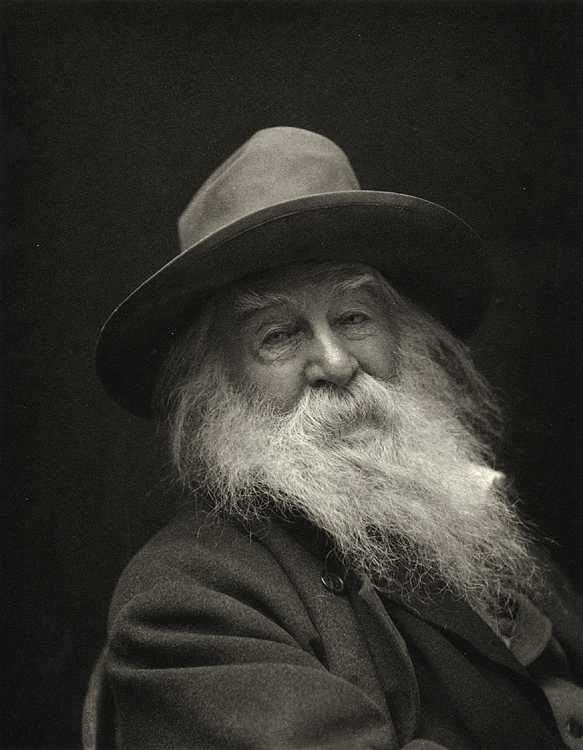
Near the end of a sunny weekend I have spent immersed in Shakespeare, Orwell and words written physically on a page (somehow becoming a strange thought for this literature-teacher), I am called back to the stillness, soul and freedom spoken by the great poets.
In Arkansas I had a friend who taught me about flyfishing and with whom I enjoyed many summer mornings at a summer camp in the Ozark foothills who told me that his grandfather had written into his will that B. must read every word that Walt Whitman ever wrote. Struck by the power of such an urging, I immediately invested in a hardbound copy of Leaves of Grass and was transfixed by the American Bard’s greatness and also simplicity: as Shakespeare must be thought of as a man in his twenties carving out a life in scribbled pages, so is Whitman a more-than-mortal (though quite-less young) man bent on the explorative expression of his honest self. As it turns summer, and the bloom of life in the local woods and mountains increase their invitations to adventure, it is good to think of Walt Whitman, on what would be his 190th birthday:
I exist as I am, that is enough, If no other in the world be aware I sit content, And if each and all be aware I sit content. One world is aware and by far the largest to me, and that is myself, And whether I come to my own to-day or in ten thousand or ten million years, I can cheerfully take it now, or with equal cheerfulness I can wait.
From today’s Writer’s Almanac:
It’s the birthday of Walt Whitman, (books by this author) born at West Hills, Long Island (1819). When he was four, his family moved to Brooklyn, and he spent much of his youth and early manhood there. He loved to ride the ferry between Manhattan and Brooklyn, and wrote about it the journey in “Crossing Brooklyn Ferry.” The words of his poem are now etched into a fence at the new Fulton Ferry Landing pier.
Whitman hung out all over New York City, in clubs and pubs, including at a place called Pfaff’s Beer Hall, on Broadway near Bleecker Street. The place to drink was in the cellar, and to get down to it, Whitman and his fellow carousers had to navigate down a set of uneven stairs. Inside, the bar had high ceilings, was poorly lit, and was always filled with thick smoke. Whitman spent many nights there. He even wrote a few lines of verse about the place:
“The vault at Pfaff’s where the drinkers and laughers meet to eat and drink and carouse; while on the walk immediately overhead pass the myriad feet of Broadway.”Whitman worked as a journalist in Brooklyn and roamed the streets on foot, carrying around a polished cane, people-watching, and seeking out story ideas. He also wrote editorials decrying the area’s various problems. He felt that the place was dirty and disorderly, and wrote in the Brooklyn Evening Star: “Our City is literally overrun with swine, outraging all decency, and foraging upon every species of eatables within their reach. … Hogs, Dogs and Cows should be banished from our streets.”
He had several homosexual relationships in New York City (though the term “homosexual” was not in use at the time), mostly with young men in their late teens and early twenties.
In 1855, Whitman self-published the first edition of his Leaves of Grass. It contained 12 poems and was 95 pages long.
“Song of Myself” begins: “I celebrate myself, And what I assume you shall assume, For every atom belonging to me as good belongs to you.